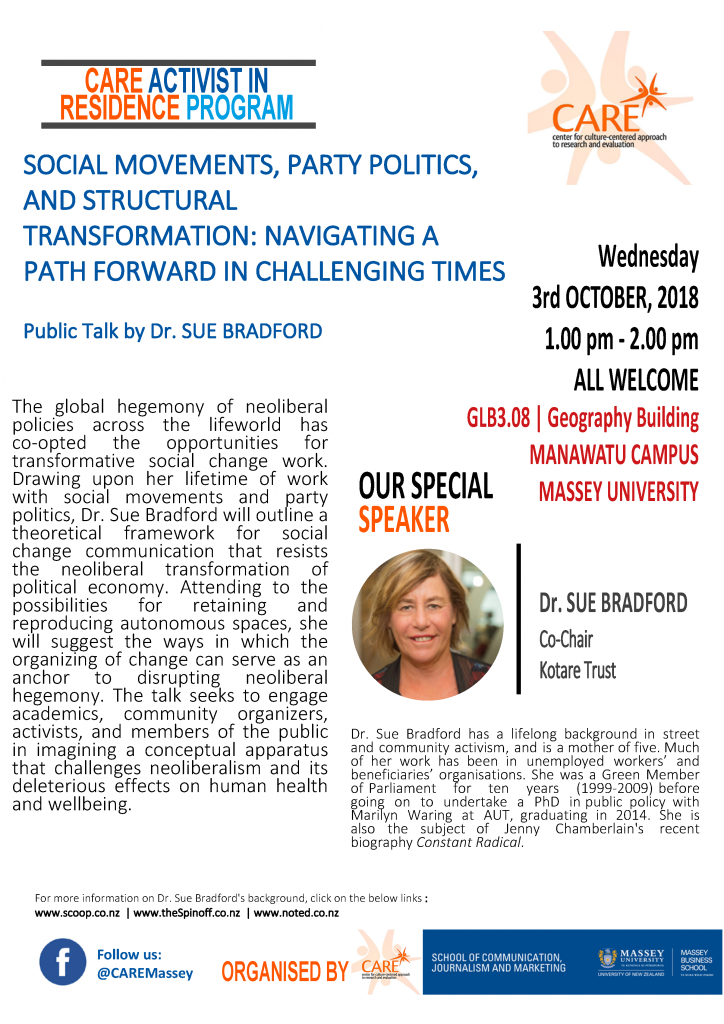Wednesday 3rd OCTOBER, 2018, 1.00 pm – 2.00 pm
Public Talk: SOCIAL MOVEMENTS, PARTY POLITICS, AND STRUCTURAL TRANSFORMATION: NAVIGATING A PATH FORWARD IN CHALLENGING TIMES
GLB3.08 | Geography Building, Manawatu campus | MBS1.42 Massey Business School Seminar Room, Auckland campus | 5D12 Communication Lab, Wellington campus
Mediasite: https://webcast.massey.ac.nz/Mediasite/Play/491fa9258f244193a9172fb0fefc9f9c1d
Please click on the URL link for more media related articles on Sue Bradford

